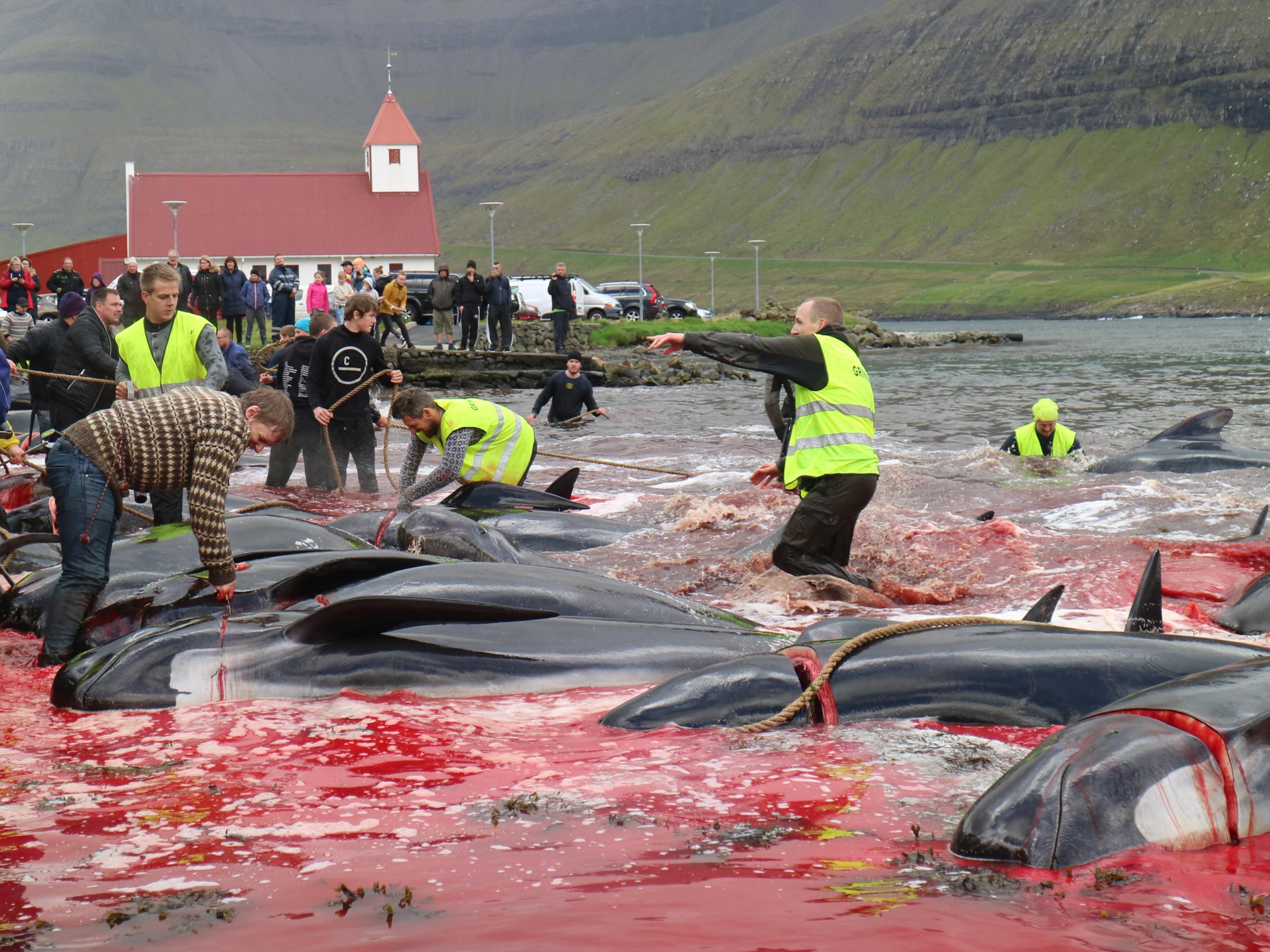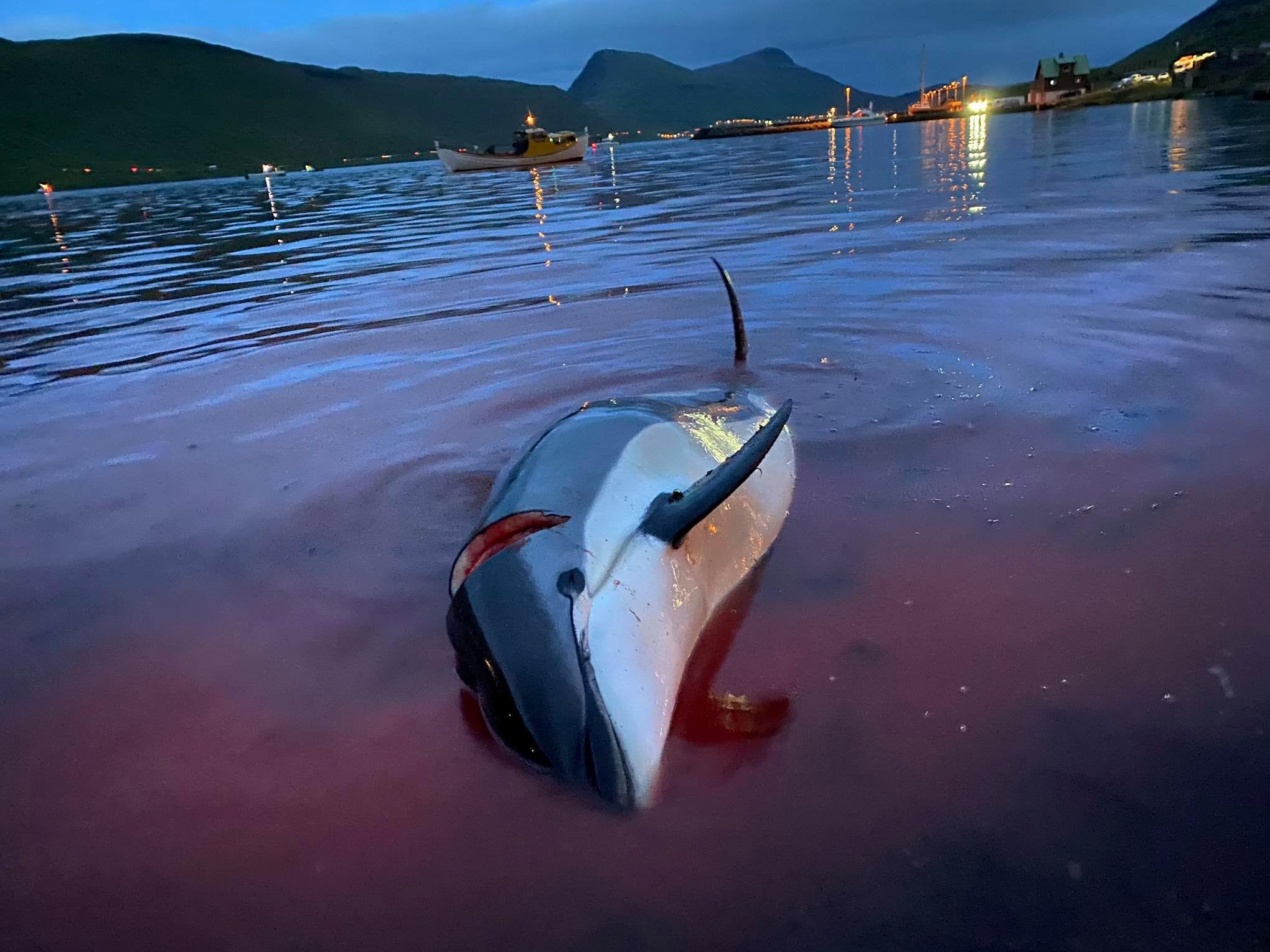Faroe Islands to limit bloody dolphin slaughter after 1,400 killed in one day
Graphic image warning: Last year’s ‘unusually large catch’ caused widespread outrage and led to a review of the tradition

Your support helps us to tell the story
From reproductive rights to climate change to Big Tech, The Independent is on the ground when the story is developing. Whether it's investigating the financials of Elon Musk's pro-Trump PAC or producing our latest documentary, 'The A Word', which shines a light on the American women fighting for reproductive rights, we know how important it is to parse out the facts from the messaging.
At such a critical moment in US history, we need reporters on the ground. Your donation allows us to keep sending journalists to speak to both sides of the story.
The Independent is trusted by Americans across the entire political spectrum. And unlike many other quality news outlets, we choose not to lock Americans out of our reporting and analysis with paywalls. We believe quality journalism should be available to everyone, paid for by those who can afford it.
Your support makes all the difference.The Faroe Islands is set to limit its bloody dolphin hunt following public outcry when last year’s hunt saw 1,400 animals killed in a single day.
A review was ordered in February after a petition with almost 1.3 million signatures submitted to the Faroese government called for a ban on the tradition.
The hunt has long received widespread criticism, especially from animal rights activists who deem the practice barbaric and unnecessary.
Last year’s “unusually large” killing of 1,423 dolphins shocked locals and even drew criticism from groups involved in the act.

“An annual catch limit of 500 white-sided dolphins has now been proposed by the Ministry of Fisheries on a provisional basis for 2022 and 2023,” the territory’s fisheries ministry said in a statement.
“Aspects of that catch [2021] were not satisfactory, in particular the unusually large number of dolphins killed,” the statement read.
“This made procedures difficult to manage and is unlikely to be a sustainable level of catch on a long-term annual basis,” it added.
The government also stressed that the hunt was an “important supplement to the livelihoods of Faroe Islanders”.
“The government of the Faroe Islands continues to base its policies and management measures on the right and responsibility of the Faroese people to utilise the resources of the sea sustainably.
“This also includes marine animals, such as pilot whales and dolphins,” the statement read.

The hunting of sea animals – known as “grindadrap”, or “grind” for short, in Faroese – is a longstanding tradition on the remote islands, taking place for over 800 years.
The practice involves herding whales and dolphins onto a beach where they are slaughtered as their blood turns the sea red.
Whale and dolphin meat is still consumed for traditional reasons by some islanders, but the proportion of the population who still eat it has reduced significantly over the years.
In previous years, British supermarkets have been urged to stop selling seafood from the Faroe Islands in protest against the tradition.
However, only the dolphin hunt is being reviewed, not the entire grind tradition.
Join our commenting forum
Join thought-provoking conversations, follow other Independent readers and see their replies
Comments